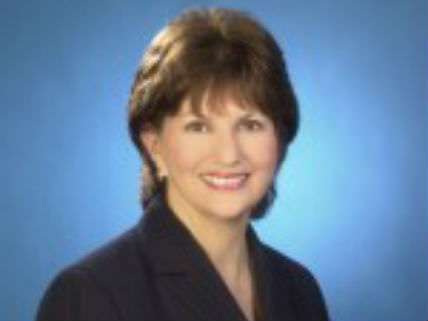We Save Lives…and Arbitrarily Punish Pot Smokers

Since leaving Mothers Against Drunk Driving (MADD), which she founded in 1980, Candace Lightner has expressed appropriate skepticism about efforts to reduce the legal alcohol limit for operating a motor vehicle, first from 0.1 percent to 0.08 percent, the cutoff favored by legislation that Congress enacted a decade ago, and now from 0.08 percent to 0.05 percent, the level recommended by the National Transportation Safety Board (NTSB) in a recent report. Yet as president of a new organization called We Save Lives (WSL), Lightner supports "zero tolerance" laws for driving under the influence of drugs (DUID). In states with such laws, WSL explains, "any detectable amount of a controlled substance, other than a medicine prescribed by a physician for that driver, in a driver's body fluids constitutes per se evidence of a 'drugged driving' violation." That rule, which makes no pretense of linking a certain drug level to unsafe driving, is really about punishing people for using intoxicants that politicians don't like rather than protecting the public from dangerously impaired drivers.
When Lightner talks about alcohol, her approach is much more nuanced. "I thought the emphasis on .08 laws was not where the emphasis should have been placed," she told the Los Angeles Times in 2002. "The majority of crashes occur with high blood-alcohol levels, the .15, .18, and .25 drinkers. Lowering the blood-alcohol concentration was not a solution to the alcohol problem." This week Lightner made similar comments about the NTSB proposal in an interview with U.S. News & World Report:
"I don't believe it is a practical long-term solution," Lightner told U.S. News. "You could go to 0.0 and that would save lives. You could go to a 40 mph speed limit and that would save lives, but you have to look at what's realistic."
The laws would likely save lives in the short-term due to media attention, she said, but ultimately "won't be enforced and will be a waste of time," distracting from what Lightner sees as the most significant highway safety issues: high-BAC drunk driving, drugged driving and distracted driving….
"Running around trying to arrest everyone at .05 is impractical," Lightner says. Police and prosecutors she spoke with said the lower limit would be "very hard to prosecute," in part because many of those drivers would pass a field sobriety test, leaving only subjective evidence of impairment.
But while Lightner rejects the idea of a 0.0 standard for alcohol, she thinks it is wise policy for illegal drugs. Bad as the DUID definition recently adopted by Colorado and Washington is, Lightner's definition is far worse. Those laws say a driver is drugged if his blood contains five nanograms or more of THC per milliliter (a presumption that is rebuttable in Colorado). The laws Lightner is pushing say a driver is drugged if his blood contains any detectable amount of THC. Under that standard, daily pot smokers will always be considered drugged, even when they are perfectly capable of driving safely, because they will always have residual levels of THC in their blood. This rule punishes regular cannabis consumers by making it impossible for them to drive legally, even in states that do not treat marijuana use as a crime.
The essentially punitive nature of this policy is underlined by the exception for drivers whose bodily fluids contain controlled substances that were prescribed by a doctor. This means, for example, that a driver with doctor-prescribed amphetamine in his blood is not considered impaired, while another driver with exactly the same amount of exactly the same drug in his blood is considered impaired if he got the pill from a friend or relative with a prescription. Even leaving aside the fact that a stimulant is apt to improve rather than impair driving ability, this distinction has no scientific basis. A little piece of paper signed by an M.D. cannot possibly make a driver less impaired. It therefore is totally irrelevant if Lightner's aim is to protect public safety. But giving a pass to drivers with prescriptions makes sense if the real aim is enforcing the government's arbitrary pharmacological dictates. "Our sole mission is to save lives by promoting responsible driving," WSL claims. The organization's support for zero-tolerance DUID laws shows that's not true.
[Thanks to Allen St. Pierre for the tip.]


Show Comments (34)